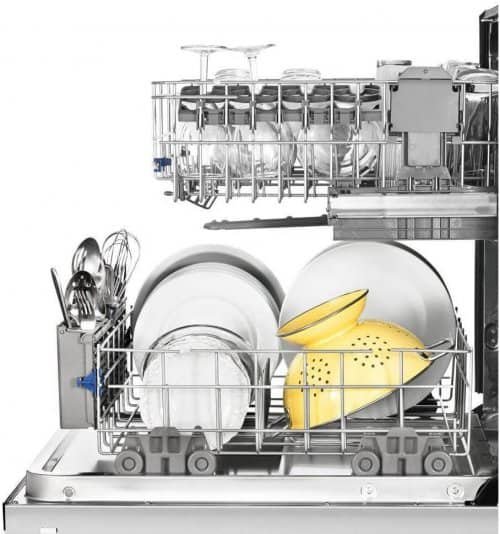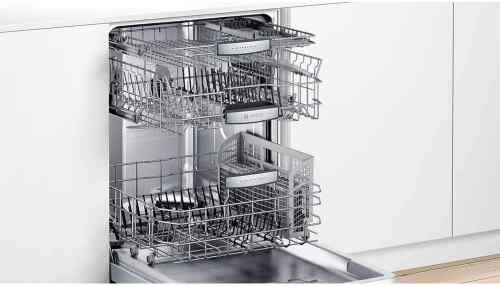Imagine coming into your kitchen to find a pool of water beneath your dishwasher. It’s a frustrating and potentially damaging situation. A leaking dishwasher not only creates a mess but also poses a risk of water damage to your floor and cabinets. So, why is your dishwasher leaking from underneath, and what can you do about it? In this article, we will explore the common causes of dishwasher leaks, provide troubleshooting tips, suggest DIY fixes, and offer preventive measures to help you address and prevent this problem.
Table of Contents
Understanding the Problem: Why Is My Dishwasher Leaking From Underneath?
When your dishwasher starts leaking from underneath, it’s essential to understand the possible causes. By identifying the source of the problem, you can take appropriate action to fix it. Here are some common reasons for a dishwasher to leak:
Faulty Door Seal
The door seal, also known as a gasket, creates a watertight seal when the dishwasher door is closed. Over time, the seal may become worn, torn, or improperly aligned. This can result in water escaping from the dishwasher during the wash or rinse cycles.
Loose or Damaged Hose Connections
Dishwashers have various hose connections for water supply, drainage, and circulation. If these connections are loose, damaged, or not properly secured, they can cause water to leak from the dishwasher. Inspecting and tightening the connections can often resolve the issue.
Clogged Drain Hose
The drain hose carries wastewater from the dishwasher to the sink drain or garbage disposal. If the drain hose becomes clogged with debris or food particles, water can back up and leak out from underneath the dishwasher. Clearing the clog should alleviate the problem.
Leaking Pump or Pump Seal
The pump in a dishwasher is responsible for circulating water during the wash and rinse cycles. If the pump or its seal is damaged or worn out, it can result in water leakage. Replacing the pump or pump seal may be necessary to resolve the issue.
Understanding these common causes will help you narrow down the source of the leak and proceed with appropriate troubleshooting steps.
How to Troubleshoot a Dishwasher Leak From Underneath?
Before jumping to conclusions or calling a professional, you can perform some initial troubleshooting steps to identify the cause of the leak. Here’s a step-by-step guide to help you:
Step 1: Inspect the Door Seal
Carefully examine the door seal for any visible signs of damage, such as cracks, tears, or deformation. Clean the seal and ensure it is properly aligned with the dishwasher frame. If you notice any significant damage or misalignment, it might be necessary to replace the door seal.
Step 2: Check Hose Connections
Inspect all the hose connections in your dishwasher. Ensure that they are tight and properly connected. If you notice any loose or damaged connections, tighten them using appropriate tools or consider replacing the faulty hoses.
Step 3: Clear a Clogged Drain Hose
If you suspect a clogged drain hose, disconnect it from the sink drain or garbage disposal. Using a long brush or a plumbing snake, carefully remove any debris or blockage that may be causing the clog. Once cleared, reconnect the drain hose securely.
Step 4: Examine the Pump and Pump Seal
Inspect the dishwasher’s pump and the seal around it. Look for any visible signs of damage, such as cracks, leaks, or excessive wear. If the pump or pump seal is faulty, it might be necessary to replace them. Consult the dishwasher’s manual or seek professional assistance if needed.
By following these troubleshooting steps, you can often identify and resolve the issue causing your dishwasher to leak from underneath.

DIY Fixes for Dishwasher Leaks
Depending on the cause of the leak, you may be able to fix the problem yourself. Here are some common DIY fixes for dishwasher leaks:
Replacing the Door Seal
If the door seal is damaged beyond repair or no longer seals properly, you can purchase a replacement seal from the dishwasher manufacturer or a reputable appliance parts store. Follow the manufacturer’s instructions or consult a repair guide to ensure correct installation.
Tightening or Replacing Hose Connections
If loose or damaged hose connections are causing the leak, you can tighten them using appropriate tools, such as pliers or a wrench. If the hoses are severely damaged, it’s best to replace them with new ones to ensure a secure and leak-free connection.
Unclogging the Drain Hose
To clear a clogged drain hose, disconnect it from the sink drain or garbage disposal, as mentioned earlier. Carefully remove any debris or blockage using a brush or plumbing snake. Once cleared, reconnect the drain hose securely.
Repairing or Replacing a Leaking Pump or Pump Seal
If the pump or pump seal is the culprit, it may be necessary to repair or replace them. This repair is more complex and may require specific tools and expertise. Consider consulting a professional or referring to the dishwasher’s manual for guidance.
Remember, when attempting DIY fixes, always prioritize safety and consult the manufacturer’s instructions or seek professional help when in doubt.
When to Call a Professional?
While some dishwasher leaks can be resolved through DIY fixes, there are situations where it’s best to call a professional:
Complex Repairs or Replacements
If the issue involves complex repairs or replacements, such as motor or pump replacement, it’s advisable to enlist the help of a qualified technician. They have the knowledge, experience, and tools to handle intricate dishwasher repairs safely.
Underlying Plumbing Issues
If the leak persists even after performing basic troubleshooting steps and DIY fixes, it could indicate underlying plumbing issues. In such cases, it’s best to consult a plumber who can assess the plumbing system, identify any faults, and provide appropriate solutions.
Calling a professional ensures that the problem is addressed effectively and reduces the risk of further damage or safety hazards.
Preventive Measures to Avoid Dishwasher Leaks
Taking preventive measures can help you avoid dishwasher leaks and maintain the efficiency of your appliance. Here are some tips to consider:
Regular Inspection and Maintenance
Periodically inspect your dishwasher for any signs of wear, damage, or leaks. Clean the door seal, check hose connections, and ensure proper functioning of the pump. Regular maintenance and early detection of issues can prevent leaks and extend the lifespan of your dishwasher.
Using Appropriate Detergent and Loading Techniques
Use dishwasher detergent specifically designed for your appliance. Avoid using excessive detergent, as it can cause excessive suds and potentially lead to leaks. Additionally, load your dishwasher following the manufacturer’s recommendations, avoiding overcrowding or obstructing the spray arms.
Checking Water Supply and Pressure
Ensure that the water supply line is securely connected to your dishwasher and that there are no leaks or kinks in the line. Also, check the water pressure and adjust it to the manufacturer’s recommended levels. High or low water pressure can affect the dishwasher’s performance and potentially cause leaks.
Avoiding Overloading the Dishwasher
Overloading the dishwasher with too many dishes can put excessive strain on the appliance and compromise its ability to function properly. Follow the dishwasher’s capacity guidelines and distribute the dishes evenly for optimal cleaning and to prevent leaks caused by uneven weight distribution.
By following these preventive measures, you can minimize the chances of your dishwasher leaking from underneath and ensure its smooth operation.
How much does it cost to repair a leaking dishwasher?
The cost of repairing a leaking dishwasher can vary depending on the cause of the leak, the extent of the damage, and the rates of local repair services. It’s best to contact a reputable technician for an accurate assessment and cost estimate.
Can a leaking dishwasher cause water damage to my kitchen floor?
Yes, a leaking dishwasher can potentially cause water damage to your kitchen floor. It’s crucial to address the leak promptly to prevent further damage and the need for costly repairs.
Is it normal for a dishwasher to have a small amount of water underneath it?
A small amount of water underneath a dishwasher is usually normal, especially after a wash cycle. However, if the amount of water is excessive or persistent, it may indicate a problem that requires attention.
Why is my dishwasher leaking only during certain cycles?
If your dishwasher is leaking only during certain cycles, it could be due to issues specific to those cycles, such as increased water pressure or a malfunctioning component related to that particular cycle. Consult a professional for a thorough inspection and diagnosis.
Can I use silicone to fix a leaking dishwasher?
While silicone can be used as a temporary fix for small leaks in certain situations, it’s generally not recommended for permanent repairs. It’s best to identify the underlying cause of the leak and address it appropriately to prevent further damage.
Conclusion
A dishwasher leaking from underneath is a common problem that can lead to water damage and inconvenience in your kitchen. By understanding the causes, troubleshooting the issue, and taking preventive measures, you can address and prevent dishwasher leaks effectively. Remember to inspect the door seal, check hose connections, clear clogged drain hoses, and examine the pump and pump seal. When in doubt, consult a professional to handle complex repairs or plumbing-related concerns. By maintaining your dishwasher and following proper loading and maintenance practices, you can enjoy a leak-free appliance for years to come.

